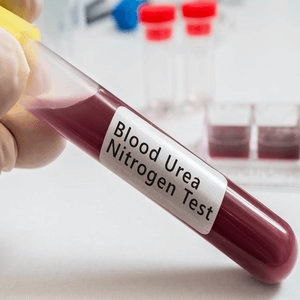What is the full form of BUNBUN: Blood Urea NitrogenBUN stands for Blood Urea Nitrogen. It refers to the blood urea nitrogen test, which is also known as the serum BUN test. BUN tests are also known as urea nitrogen tests and serum BUN tests. This test is used to measure the level of waste products (urea nitrogen) in your blood. If the levels are off the normal range, either your kidneys or liver is not working properly. So, it is mainly used to determine how well your kidneys are working. Let us see how it does this: 
The test measures the amount of urea nitrogen in the blood. Urea nitrogen is produced by the Liver as a waste product when our body breaks down proteins. It is filtered out by the kidneys and then it is expelled from the body through urine. The BUM level increases when the kidney or liver is damaged or not working properly as a damaged kidney could not filter or separate the urea nitrogen from the blood. Eventfully it is not expelled from the body through urine and there will be too much urea nitrogen in the blood, an indication of a damaged kidney. Normal BUN Levels:
Some key factors that may cause an increase in the BUN are:
Besides, kidney failure or diseases, BUN test also helps diagnose various medical conditions:
What does it serve?A comprehensive metabolic panel, which consists of several tests, frequently includes a BUN test. It can support the detection or monitoring of a kidney problem or illness. I need a BUN test, why?A BUN test may be prescribed by your doctor as part of a normal examination or if you already have or are at risk for renal disease. Early kidney disease typically has neither symptoms nor indications. Kidney disease might be bound to happen if you have:
Your doctor may evaluate your BUN levels. If you exhibit signs of advanced kidney disease, such as:
What happens in a BUN test?A small needle will be used by a clinical expert to draw blood from a vein in your arm. A modest quantity of blood will be gathered into a test tube or vial once the needle has been put. The needle might sting fairly when it enters or leaves your body. Normally, this only takes a couple of minutes What to do before the test?A BUN test often requires no extra preparation. However, you might need to fast (not eat or drink) for a few hours before the test if your doctor has requested further testing on your blood sample. In the event that there are any particular instructions to follow, your provider will let you know. What are the risks of the test?The risk of getting a blood test is incredibly low. The area where the needle was inserted may cause some little discomfort or bruise, but the majority of side effects disappear quickly. What do the findings indicate?Although normal BUN levels might vary, in general, a high blood urea nitrogen level indicates that your kidneys are not functioning properly. Nonetheless, strange outcomes don't necessarily in every case show that you have a medical problem that requires consideration. Lack of hydration (too minimal liquid in your body), burns, a few meds, a high-protein diet, or different factors, like your age, can likewise result in higher-than-typical BUN levels. BUN levels commonly ascend as you age. Talk with your medical care expert to figure out what your outcomes mean.
Next TopicFull Form
|
 For Videos Join Our Youtube Channel: Join Now
For Videos Join Our Youtube Channel: Join Now
Feedback
- Send your Feedback to [email protected]
Help Others, Please Share










